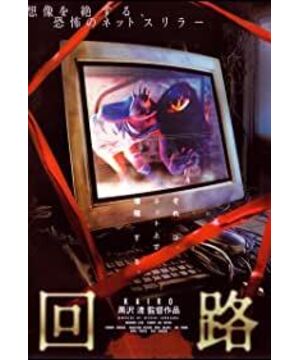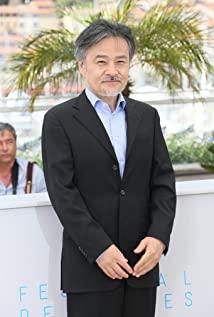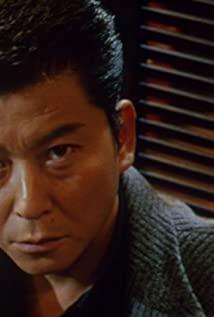Then complain above.
This is an unconventional horror movie.
However, the only failure is that the vulgar routine of conventional horror films appeared in the latter part, that is, relying on the irrational killing behavior of the protagonist to advance the plot. I think that even if the director doesn't pay much attention to the story itself, this kind of convenience is too much. Although there is a foreshadowing of the face-to-face with the ghost. But the way of forcibly connecting the stem is still too blunt.
Indeed, the director didn't make it clear where the plague-like ghost came from, what happened to the unopenable room sealed with red tape, and how Tokyo became a ghost town. The story is somewhat bizarre. However, expecting this film to give a clear start and turn to the storyline would have been a wrong choice. I haven't watched the US version yet, but according to the consistent nature of the US version's remake, it can be speculated that the US version will be more suitable for such needs.
In my opinion, Kiyoshi Kurosawa's video style is too aggressive and has entered a state of spiritual pollution. The depressing slow rhythm, the depressing low camera position and the depressing super-long shot, the weirdness is all in the picture. Many of Ling's designs are similar in purpose. And inexplicable strange, irritating sound effects, often suddenly stopped and more annoying sound effects. The vocal BGM used in this one is really annoying. Of course, this is a compliment.
So compared to the kind of low-level bridge that suddenly made a grimace and then added a pot-like sound effect to simply hit the heart, Kiyoshi Kurosawa really didn't know how high it was. His ghost is right there in your camera, moving weirdly, twisting weirdly, slowly approaching the camera, slowly penetrating the audience. There were so many times when one could not breathe. Visibility horror? Probably so.
Equally annoying are the conversations that often fail to catch up, and the radio waves that often fail to catch up. For example, Kawashima went to Chunjiang for the second time; Mizhi rescued a friend to her own home, seemingly concerned but ignored her friend's last conversation, these two are extremely obvious. Then it’s time to talk about the theme. Are people really supporting each other, needing each other and understanding each other? Ah, even though the distance is so close, the heart wall between people is still... uh, stop.
Although the story is ambiguous, what it wants to say is still clear. The ghosts wandering the Internet, the infected people are like corpses; in the end, even if Chunjiang chooses to be with it, he still refuses Kawashima's kindness; the dead city of Tokyo and the end of the world have become another form of present tense after fifteen years . From the very beginning, the director used Chunjiang's mouth to express his original intention bluntly - the program that if you get too close, you will die, and if you are too far, you will come close. It is a system used to study the human living environment. And the plot of people who refused others to choose to die alone and then kept calling for help after turning into shadows became another supplementary explanation for this passage. Ah, aren't humans like porcupines, eager to lean together for warmth, but hurt each other by each other's spikes... uh.
Considering the age of the film, it was not only a period of chaos at the end of the century and the beginning of the century, but also a period of full-scale revival of otaku culture. I don't think the director wants to talk about the alienation brought about by highly advanced technology (that would make the concept of computers and the Internet clearer), but more like the otaku culture that began to proliferate and the loneliness that accompanies it. To live is to be alone, and to be with everyone when you die - but that's just imagination, and after death it's eternal loneliness.
View more about Pulse reviews











